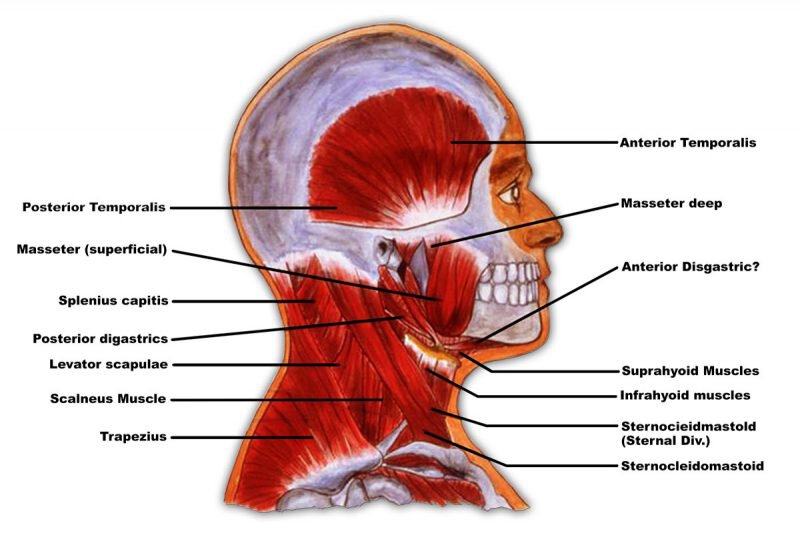
TMJ Disorder
BEVERLY HILLS & SHERMAN OAKS

BEVERLY HILLS & SHERMAN OAKS
That clicking, popping and discomforting pain of your jaw has a name.
It's called TMJ disorder, or Temporomandibular joint dysfunction. Though TMJ refers specifically to the area affected — the Temporomandibular joint — this acronym is often used interchangeably with TMD. Most people aren't familiar with the acronym or the condition, for it is still being studied and grasped, but there's a good reason for the unfamiliarity. In fact, many physicians and dentists find themselves in the same boat as you, just not L.A.'s TMJ disorder expert, Dr. Eddie Siman. For over 30 years, Dr. Siman has devoted his professional career to the study and treatment of TMJ, making him uniquely qualified to help you understand all there is to know about the condition. In the course of his long career, Dr. Siman has transformed the lives of thousands of patients by eliminating their painful symptoms for good after others had failed.
Most of our patients come in after:
If this sounds familiar, you’re in the right place.

Unlike many others who deem themselves TMJ Experts, Dr. Siman has been able to holistically treat more patients suffering from TMJ disorder because he understands the importance of the Temporomandibular joint relative to the rest of the human body. TMJ disorder symptoms encompass more than simply lockjaw. You may not know it, but a strained TMJ may be the very cause behind your tinnitus, ear congestion, migraines, and even the posture of your back among other symptoms.
Your upper and lower jaws are supposed to fit together in one resting position, but with TMJ disorder, patients' jaws are misaligned. The result is usually an uneven bite and compromised movement of the jaw joint and its surrounding muscles. When a person's bite is unbalanced, the rest of the upper body and head regions are hindered due to muscle tension that can eventually cause further problems like neck and shoulder pain and even sleep apnea.
For our patients in Sherman Oaks & Beverly Hills TMJ disorder can be debilitating. To understand the range of effects of TMJ disorder better, think of the condition and its subsequent symptoms as a line of dominos. When there is heavy strain or disruption (jaw dislocation) of this particular region, the damage cascades through the rest of the body. Many medical and dental professionals don't understand and brush aside the possible connection of the jaw and TMJ disorder to recurring headaches, neck, shoulder, and back pain. Others aggravate matters by providing nightguards that make the pain worse. Don't rule out TMJ; call our office to set up a consultation with Dr. Siman.
TMJ issues can show up in all kinds of ways, and not always where you'd expect. You might think your headaches or neck pain have nothing to do with your jaw, but for many people, it's all connected.
This is often the first thing people notice. You might feel a deep ache near your ears, along your jawline, or even into your cheeks. Some people feel it most when they chew or talk a lot.
If your jaw clicks or pops when you open wide or chew, that's a red flag. It might not hurt at first, but it's a sign your jaw joint isn't moving the way it should.
Some people have trouble opening their mouths all the way. Others feel like their jaw "gets stuck" open or closed. It can make eating or even yawning uncomfortable.
Frequent headaches, especially the kind that seem to start near your temples or neck, can be tied to jaw tension. TMJ problems often cause muscle strain that triggers these kinds of headaches.
Ringing in the ears (tinnitus), a feeling of fullness, or earaches with no sign of infection can all trace back to jaw tension.
Jaw misalignment doesn't just stay in the jaw. It can affect the muscles in your neck and shoulders, especially if your bite is off and you're clenching without realizing it.
A lot of things can cause TMJ problems. Some start slowly and build over time, while others show up after a specific injury or major stress event.
Many people clench their jaws or grind their teeth (bruxism) when they're stressed or while they sleep. Over time, this wears down the joint and overworks the muscles.
An injury to your face, jaw, or even neck can throw things out of balance. Car accidents and sports injuries are common culprits.
If your teeth don't come together evenly, your jaw muscles and joints have to work harder to compensate. That can lead to long-term strain.
Like any other joint, the TMJ can develop arthritis. This may cause pain, stiffness, or even damage to the joint over time.
Believe it or not, poor posture can mess with your bite. If your neck and shoulders are out of alignment, your jaw often follows.
TMJ issues can be tricky to spot if you're not looking in the right place. That's why Dr. Siman uses tools and techniques that go deeper than the surface.
Instead of old-school X-rays, your first visit includes a 3D CT scan right here in the office. It gives a full view of your jaw joint, teeth, and the way your bite fits together. It also helps us see how your TMJ might be affecting your neck and shoulders.
TMJ problems often show up in other parts of the body. That's why we also look at the muscles in your neck, back, and shoulders. It helps us figure out the full picture, especially if you've been dealing with headaches, ringing in your ears, or sleep issues.
Dr. Siman doesn't rely on tech alone. After reviewing your scan, he performs a detailed hands-on exam. He checks how your jaw moves, looks for muscle tension, and maps out where your bite should rest naturally. Using advanced tools and decades of experience, he finds the jaw position where your muscles are most relaxed.
TMJ treatment isn't a one-size-fits-all thing. It depends on what's causing the issue and how your body responds.
Once your ideal jaw position is identified, we create a custom orthotic, sort of like a retainer, but much more precise. It helps realign your jaw and gives your joints and muscles a chance to heal. This isn't the kind of splint you'd get from a general dentist; it's made using neuromuscular technology to fit your needs exactly.
We also use a therapy called TENS, which sends gentle pulses into the muscles around your jaw. It helps those tight areas relax, improves blood flow, and eases pain. You may feel a soft tapping sensation during treatment; most people find it calming.
Once symptoms improve, some patients choose to fix their bite permanently with orthodontics, porcelain restorations, or both. This part is up to you — there's no pressure unless it's needed for long-term comfort.
Getting help for TMJ can make a huge difference, not just for your jaw, but for your overall well-being. People are often surprised how many daily struggles start to fade once their jaw is in a better place.
Here are just a few things patients notice after treatment:


We start by sitting down with you and getting a full picture of what you've been dealing with, jaw pain, headaches, sleep issues, or anything else that might be connected. From there, we take a CT scan of your jaw using our in-house equipment. This gives us a detailed 3D view of your jaw joints, bite alignment, and surrounding structures. Once we have your scan, Dr. Siman walks you through the results, explains what's going on, and lays out a clear plan tailored to your specific symptoms and goals.
Before your visit, it helps to complete your health history forms in advance so we can spend more time focusing on you, not paperwork. Take a moment to think about your symptoms, when they started, what triggers them, and anything that seems to help. If you've noticed that you clench or grind your teeth, let us know whether it happens during the day, at night, or both. On the day of your appointment, wear something comfortable since we'll also be checking your posture, neck, and shoulders as part of the evaluation.
Dr. Siman has helped over 20,000 people find lasting relief from TMJ, sleep apnea, and bite-related problems. With 35+ years of experience and credentials from the ADA, AACP, ICOI, and ICCMO, he combines deep knowledge with hands-on care.
Unlike other offices that rely on surface-level imaging or guesswork, Dr. Siman uses high-tech diagnostics and a unique treatment protocol based on actual jaw mechanics. Patients often say they've "been everywhere" before finding relief here. That's because we look deeper and treat what's really going on, not just the symptoms.
To learn more about TMJ disorder Sherman Oaks & Beverly Hills leading TMJ expert, Dr. Eddie Siman, can answer any questions and go over potential solutions with you. Contact us today! (818) 574-5009
Yes, it's very common, especially in adults who clench, grind, or have bite issues.
Nope. Most people find the process comfortable and even relaxing, especially during TENS sessions.
Yes. It's non-invasive and low-risk. No surgery, no downtime.
Once your jaw is aligned and symptoms are gone, most people stay pain-free. Some choose follow-up care to keep everything on track.
Definitely. Stress is one of the biggest triggers for clenching and grinding, which can overload your jaw.
Some patients feel relief in a few weeks. More complex cases may take longer, but the goal is long-term improvement, not a temporary fix.
It can help with muscle tightness, but it's usually temporary. We focus on fixing the source of the problem, not just masking symptoms.
Dr. Eddie Siman has over 35 years of experience and is a premier TMJ and Sleep Apnea expert in Los Angeles and Orange County. Many come to Dr. Eddie Siman with severe tinnitus, migraine problems, and sleep apnea with no relief in sight. Little do these patients know that their painful symptoms are tied to the Temporomandibular joint (TMJ). Think outside the box and pay a simple visit to Dr. Siman today so you can finally find the source of all your pain and get rid of it once and for all.
Schedule your Private Consultation and Diagnosis Appointment with Dr. Siman Expert TMJ, Cosmetic Dental, and Sleep Apnea Treatments.
Call today (818) 574-5009
14629 Ventura Blvd, Sherman Oaks, CA 91423
414 N. Camden Drive Suite #1240, Beverly Hills, CA 90403